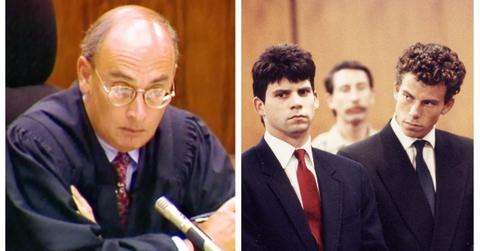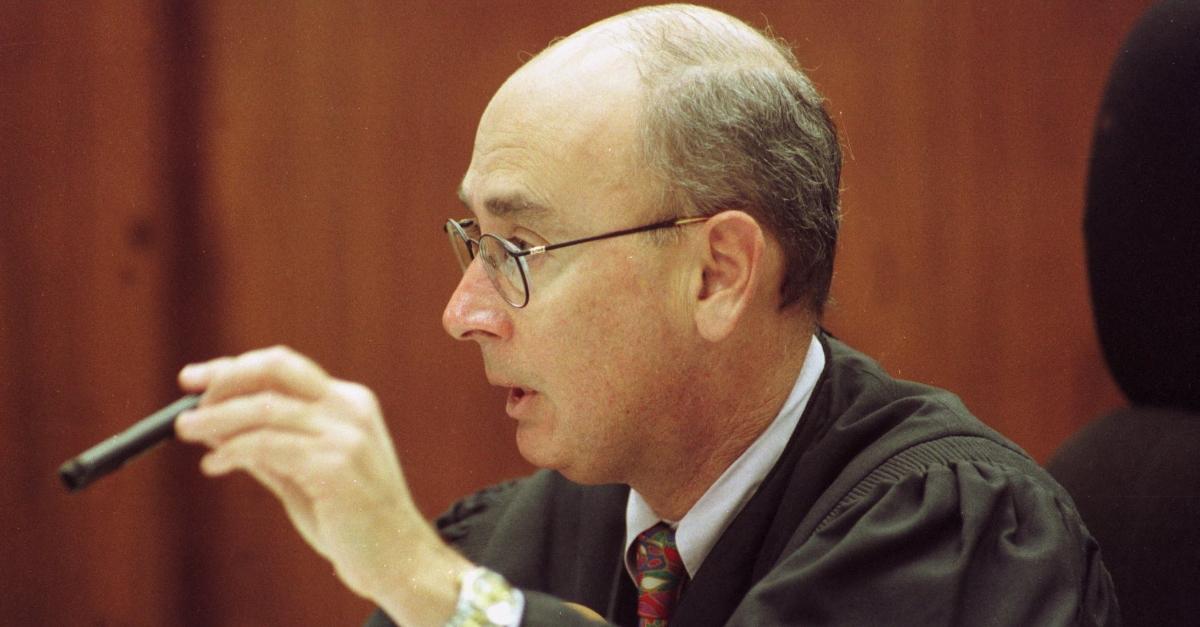Fans of the Menendez Brothers Blame Judge Stanley Weisberg for Their Conviction — Where Is He Now?
Ahead of the Menendez brothers' retrial, Judge Stanley Weisberg cut the witness list in half.
Published Oct. 8 2024, 2:39 p.m. ET

In January 1994, both juries for the Menendez brothers' trials found themselves unable to come to a unanimous decision regarding the verdicts. Judge Stanley Weisberg subsequently declared mistrials and, based on the recommendation from the state, moved forward with a retrial. Erik and Lyle Menendez sat in the Los Angeles County Jail for another 19 months until their retrial began in October 1995. Because of some significant changes made by Judge Weisberg, the retrial was different.
In the first trial, Judge Weisberg allowed one camera in the courtroom. There were also 101 witnesses, half of whom testified for the defense. Those witnesses were Menendez family members as well as friends and medical professionals, who were able to support the allegations of sexual abuse lodged against José Menendez. Judge Weisberg allowed half of these witnesses to return. Due to these decisions, many believe Judge Weisberg cost the Menendez brothers a lighter conviction. Where is he now?

Where is Judge Weisberg now?
According to the Metropolitan-News Enterprise, Judge Weisberg retired on April 11, 2008 at the age of 64. He had been a judge for over 20 years and was "first appointed to the bench in 1986 as a municipal court judge by then-Gov. George Deukmejian." The Menendez brothers trials weren't the only high-profile case Judge Weisberg presided over. Two years before their first trial began, Judge Weisberg was assigned to the Rodney King beating case.
Similar to the Menendez brothers' retrial, Judge Weisberg made a series of decisions that many believe led to an acquittal for the four members of the Los Angeles Police Department who were on trial. He once again limited media coverage but this time it was in the form of press conferences held by attorneys. Judge Weisberg wouldn't allow them, which severely impacted coverage of the trial.
The most damning decision was the change of venue ordered by Judge Weisberg, who felt a fair trial couldn't be held in Los Angeles County. As such, he moved it to Ventura County which was predominantly white. When the 12 jurors were chosen in March 1992, none of them were Black, reported the Los Angeles Times. Despite this, both the prosecution and defense were fine with the jury selection. All four officers were later acquitted which resulted in the 1992 Los Angeles Riots.
Judge Stanley Weisberg blocked abuse experts from taking part in the retrial.
Ahead of the Menendez brothers' retrial, the Los Angeles Times reported that Judge Weisberg had moved to "block all expert testimony on the 'abuse-excuse' defense, a decision that could profoundly affect the direction of the case." The judge stated he wasn't convinced there were legal grounds to use the battered spouse defense as the Menendez brothers were "battered children."
Deputy District Attorney David Conn took over for Pamela Bozanich ahead of the retrial, and he was the one to suggest these two situations were not legally the same. During the first trial, Bozanich famously said she didn't believe men could be raped. Years later she was featured on an episode of Murder Made Me Famous where Bozanich said, "I am 100 percent sure that they fabricated their defense."